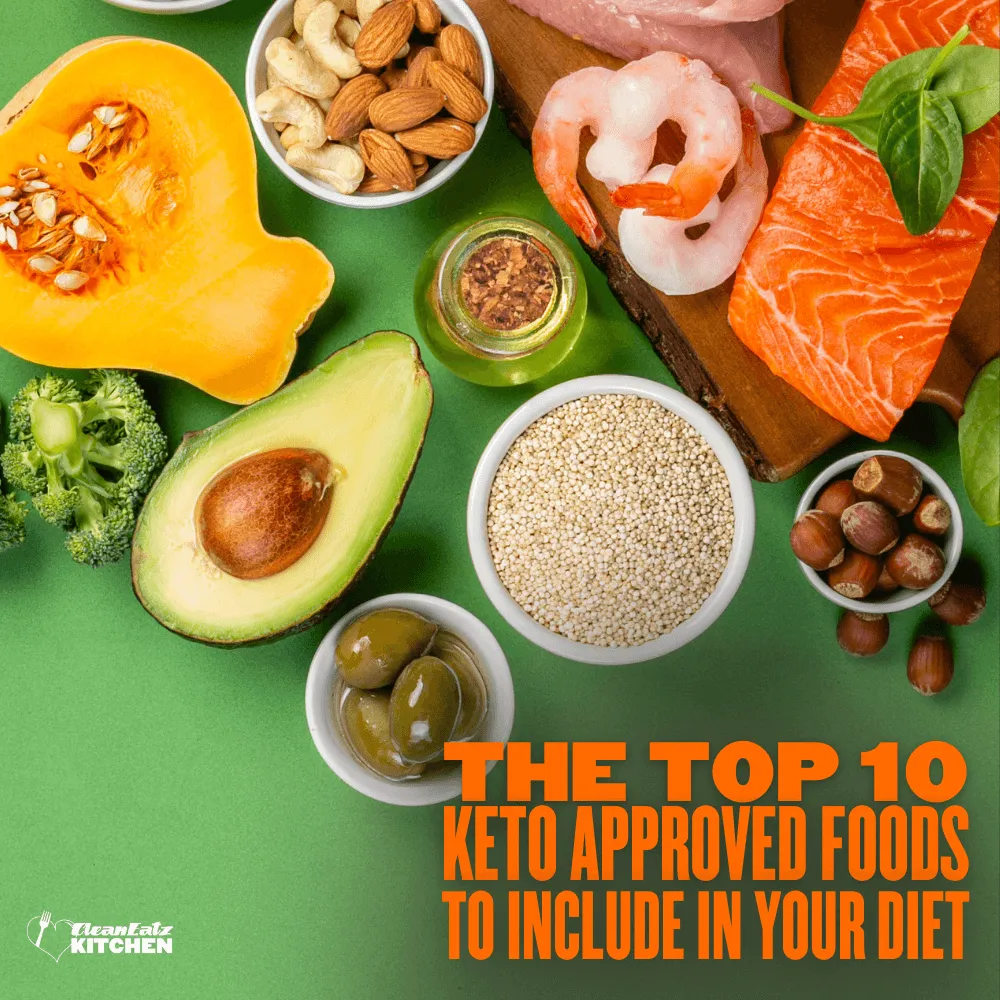Boost Your Keto Success with These Essential Foods
The ketogenic diet has been gaining popularity in recent years for its ability to help individuals lose weight, improve their overall health, and increase their energy levels. This high-fat, low-carb diet works by putting the body into a state of ketosis, where it burns fat for fuel instead of carbohydrates. While the ketogenic diet can be highly effective, it can also be challenging to maintain without the right foods. In this article, we will explore some essential foods that can help boost your keto success and keep you on track with your goals.
1. Avocados
Avocados are a staple in the ketogenic diet due to their high fat content and low carbohydrate count. They are rich in healthy monounsaturated fats, which can help keep you feeling full and satisfied while on a low-carb diet. Avocados also provide a good source of fiber, potassium, and vitamins C, E, and K. They can be eaten on their own, added to salads, or used to make guacamole.
2. Eggs
Eggs are another essential food for those following a ketogenic diet. They are high in protein and healthy fats, making them a great option for breakfast or any meal of the day. Eggs are also versatile and can be prepared in a variety of ways, such as scrambled, boiled, or poached. They are also a good source of choline, a nutrient that is important for brain health.
3. Olive Oil
Olive oil is a healthy fat that can be used in cooking or as a salad dressing. It is high in monounsaturated fats and antioxidants, which can help reduce inflammation in the body. Olive oil is also low in carbohydrates, making it a great option for those following a ketogenic diet. Be sure to choose extra virgin olive oil for the highest quality and flavor.
4. Nuts and Seeds
Nuts and seeds are a great source of healthy fats and protein for those following a ketogenic diet. They are also high in fiber, vitamins, and minerals. Some good options to include in your diet are almonds, walnuts, chia seeds, and flaxseeds. Nuts and seeds can be eaten on their own as a snack, added to salads, or used in recipes.
5. Leafy Greens
Leafy greens such as spinach, kale, and arugula are low in carbohydrates and high in nutrients. They are a great way to add volume and fiber to your meals without adding a lot of calories. Leafy greens are also rich in vitamins A, C, and K, as well as minerals like magnesium and potassium. They can be eaten raw in salads or cooked in dishes like stir-fries or soups.
6. Fatty Fish
Fatty fish like salmon, mackerel, and sardines are high in omega-3 fatty acids, which are important for heart health and brain function. They are also a good source of protein and low in carbohydrates, making them a great option for those following a ketogenic diet. Fatty fish can be grilled, baked, or pan-seared and served with a side of vegetables.
7. Coconut Oil
Coconut oil is a saturated fat that is high in medium-chain triglycerides (MCTs), which are easily converted into ketones by the liver. Ketones are an alternative fuel source for the body when carbohydrates are limited, making coconut oil a great option for those following a ketogenic diet. Coconut oil can be used in cooking, baking, or added to smoothies for an extra boost of healthy fats.
8. Berries
While most fruits are high in carbohydrates, berries like strawberries, blueberries, and raspberries are lower in carbs and can be enjoyed in moderation on a ketogenic diet. Berries are high in fiber, antioxidants, and vitamins, making them a healthy option for those looking to satisfy their sweet tooth. They can be eaten on their own, added to yogurt or smoothies, or used in desserts like keto-friendly cheesecake.
FAQs
Q: Can I drink alcohol on a ketogenic diet?
A: While some forms of alcohol like wine and spirits are low in carbohydrates, they can still slow down weight loss and affect ketosis. It’s best to consume alcohol in moderation and choose options that are low in sugar and carbs.
Q: How long does it take to get into ketosis?
A: The time it takes to get into ketosis can vary from person to person, but most individuals usually enter ketosis within 2-7 days of following a ketogenic diet. It’s important to stick to the diet plan and limit carbohydrates to achieve ketosis.
Q: What are some common mistakes to avoid on a ketogenic diet?
A: Some common mistakes to avoid on a ketogenic diet include not eating enough fat, consuming too many carbohydrates, and not staying hydrated. It’s important to track your macros, drink plenty of water, and eat a variety of nutrient-dense foods.
In conclusion, incorporating these essential foods into your ketogenic diet can help boost your success and keep you on track with your goals. By focusing on whole, nutrient-dense foods that are low in carbohydrates and high in healthy fats, you can optimize your weight loss, improve your overall health, and increase your energy levels. Remember to consult with a healthcare provider or nutritionist before making any significant changes to your diet, especially if you have any underlying health conditions. With dedication and consistency, you can achieve success on a ketogenic diet and reap the many benefits it has to offer.

